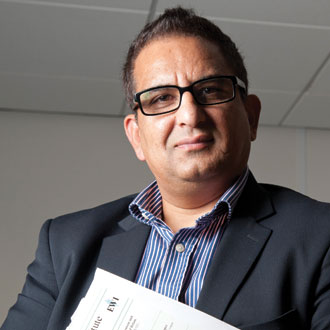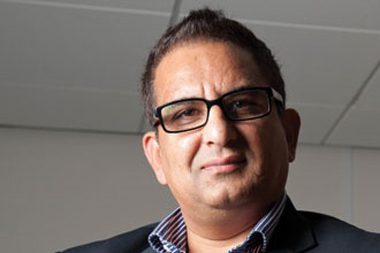
Profile
Age 49
Role Independent medical witness and salaried GP
Location London and the South-East
Hours worked per week 9am to 6pm three to four days a week, alongside up to six sessions of GP work
08.45
I start my day at one of my regular clinics, which are scattered around the South-East of England to allow access for a wide spread of clients.
At these venues I spend three to four days a week working as a GP expert witness, which involves providing impartial medical reports for the courts. I’m self-employed, paid by whoever instructs me to take the cases. I’ve been doing this for nearly 20 years. My first taste was completing police reports when working in A&E near the start of my career. I’m also a salaried NHS GP for the rest of the week, taking on four to six sessions in Kingston upon Thames.
09.00
My first client arrives: an elderly woman who lowers herself gingerly into the chair opposite me. I confirm her name, date of birth and the date of the accident, which was not long ago, and ask about any previous illnesses. This is vital, as I must ascertain that the injuries cited in my report are a direct result of the accident in question.
The client tells me she fell to the floor when standing up on a bus after the driver suddenly applied the brakes. She believes she fractured her ribs in the fall and has consequently brought a case against the bus company. I examine her thoroughly to include an opinion in my report on whether her injuries correspond to those she is claiming for.
With the floor of a bus being metallic, I look out for the signs that would be expected from such a fall. There is indeed some bruising to her knees. Her muscles are tender to the touch, and the muscles surrounding her lumbar spine have been sprained. I then do a full examination of her back to exclude any other abnormality that may be contributing to her pain.
Taking a treatment history, I find that her GP suggested physiotherapy to improve her condition. I support that opinion and recommend a referral in my report. The solicitors will be obliged to organise the sessions privately and the client will get them much more quickly than on the NHS.
10.30
A few consultations later – appointments typically take about quarter of an hour – I see a motorcyclist who was involved in a collision with a van. This patient is quite upset as the leg injury he sustained has stopped him driving to visit his ageing mother in Yarmouth, something he used to do every weekend.
This hints at issues that may be playing on the client’s mind. The injuries sustained can have a wider impact on personal life. I am able to recommend referral to counselling as a form of therapy, and even a further referral to a psychiatrist or psychologist depending on the nature of the psychological trauma.
14.00
My clinical appointments are finished so I write up a detailed report on my first client of the day, which will be sent to the instructing solicitors. After they and the client have signed it off, it will be forwarded to the bus company and taken to the courts if necessary. Mostly, the information supplied in my report will be sufficient for the courts, but sometimes it is necessary to attend myself.
15.00
It’s time to concentrate on another task; I’m building up an independent report in a case has been raised against care workers at a UK asylum centre. A patient committed suicide while being held at the centre and his parents are alleging that the care workers were negligent in their duty of care. The patient had a history of mental health issues, but the centre was not fully aware of their severity because there was a delay in his medical records arriving from abroad.
My role in this case is to report what a normal GP would ideally do in such a scenario and why the decisions taken may have differed from this. I go through the medical records step by step to get an insight into why each medical decision was made the way it was. It’s a sad case, but I have to steel myself against becoming emotionally involved and focus on being objective.
18.00
Home time: I take a minute to reflect on the day and take note of anything that may have been missed in the busy moments. I usually plan to make sure that I rarely have to do work in the evening or at the weekend. A positive work-life balance is important for both my health and for maintaining the correct perspective throughout my reports.
Pulse October survey
Take our July 2025 survey to potentially win £1.000 worth of tokens













